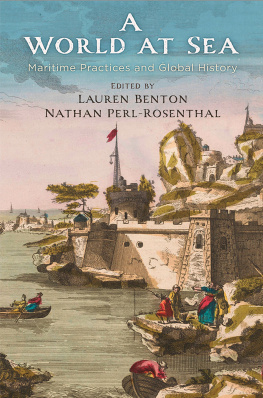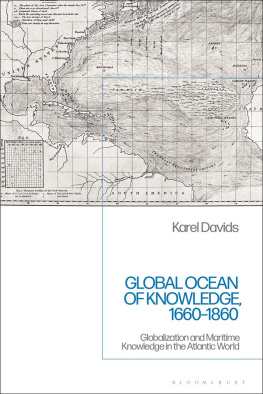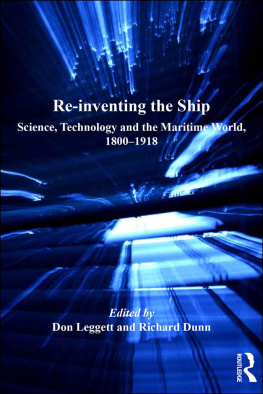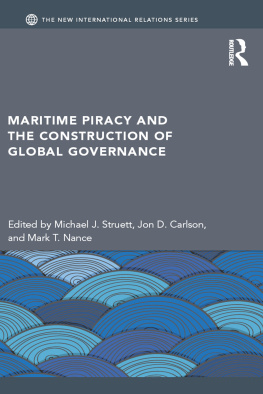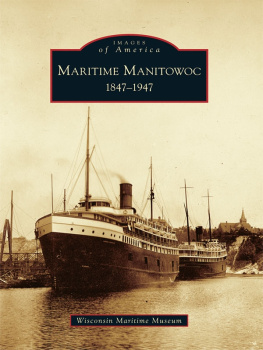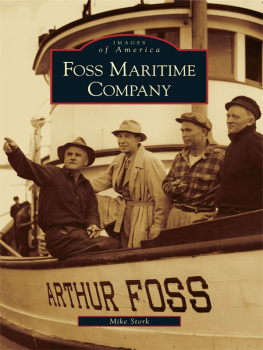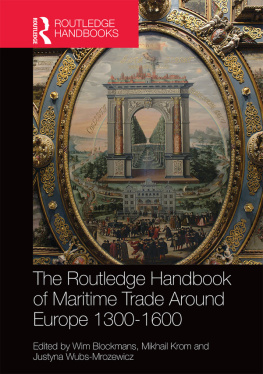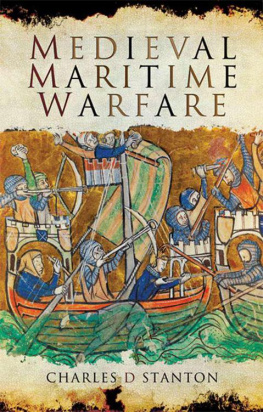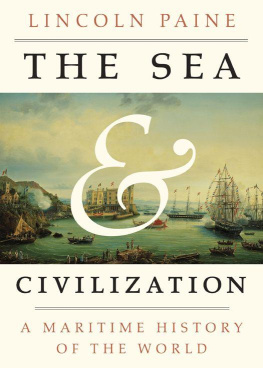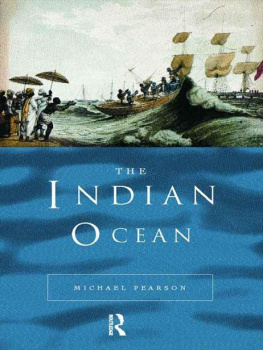
A World at Sea
THE EARLY MODERN AMERICAS
Peter C. Mancall, Series Editor
Volumes in the series explore neglected aspects of early modern history in the Western Hemisphere. Interdisciplinary in character, and with a special emphasis on the Atlantic world from 1450 to 1850, the series is published in partnership with the USC-Huntington Early Modern Studies Institute.
A WORLD AT SEA
Maritime Practices and Global History
EDITED BY
Lauren Benton and Nathan Perl-Rosenthal
PENN
UNIVERSITY OF PENNSYLVANIA PRESS
PHILADELPHIA
Copyright 2020 University of Pennsylvania Press
All rights reserved. Except for brief quotations used for purposes of review or scholarly citation, none of this book may be reproduced in any form by any means without written permission from the publisher.
Published by
University of Pennsylvania Press
Philadelphia, Pennsylvania 19104-4112
www.upenn.edu/pennpress
Printed in the United States of America
on acid-free paper
10 9 8 7 6 5 4 3 2 1
Library of Congress Cataloging-in-Publication Data
Names: Benton, Lauren A., 1956 editor. | Perl-Rosenthal, Nathan, 1982 editor.
Title: A world at sea : maritime practices and global history / Lauren Benton and Nathan Perl-Rosenthal, editors.
Other titles: Early modern Americas.
Description: First edition. | Philadelphia : University of Pennsylvania Press, [2020] | Series: The early modern Americas | Includes bibliographical references and index.
Identifiers: LCCN 2020001884 | ISBN 9780812252415 (hardcover)
Subjects: LCSH: Ocean and civilizationHistory. | NavigationHistory. | World history. | GlobalizationHistory. | Naval art and scienceHistory. | Maritime lawHistory.
Classification: LCC CB465 .W67 2020 | DDC 551.46dc23
LC record available at https://lccn.loc.gov/2020001884
Contents
Nathan Perl-Rosenthal and Lauren Benton
Carla Rahn Phillips
Adam Clulow and Xing Hang
Matthew Taylor Raffety
Nathan Perl-Rosenthal
Margaret Schotte
David Igler
Jeppe Mulich
Catherine Phipps
Lisa Norling
Lauren Benton and Nathan Perl-Rosenthal
Introduction: Making Maritime History Global
Nathan Perl-Rosenthal and Lauren Benton
The oceans are a dangerous place for human beings. Our land mammal bodies make us poor swimmers; we are prone to drowning and hypothermia. Ships and their crews bring organisms to shore, from the tiny bacillus to the Eurasian horse, that can quickly disrupt our communities. Yet for all their dangers, oceans have always been essential to human life. From time immemorial they have served as a source of food, a path for news and trade, and a medium for mobility.
The tension between the dangers of the ocean and our collective reliance on it became visible on a global scale in the formative period from 1450 to 1900. Ships and sailors in this period knitted together the parts of the world in a first globalization. Unprecedented transfers of people, ideas, microbes, and goods across aqueous spaces generated new wealth and initiated or deepened networks of exchange across regions. With connection also came the startling human misery created by overseas conquest, the spread of disease, and coerced migration. In these transformative centuries, the seas became truly globala condition reflecting not just worldwide connections but also the composition of a global regulatory order rife with inequality and violence. Even though most early modern populations never got anywhere near a coast, let alone onto the water, the maritime world reached them: the seas lay at the geographic margins of the land, but they were at the heart of global conflicts and transformative processes.
This volume seeks to sharpen and expand our understanding of how the maritime world, broadly construed, contributed to the early modern eras global transformations. The chapters build on familiar stories about the growth of maritime commercial endeavors and the regional integration of ocean basins, but they move well beyond the usual topics and approaches to maritime history. They have multiple points of departure: the shared properties of early modern maritime spaces, seafarers need to adapt to the hazards and perils of the sea, and the challenges of controlling and governing aqueous space, among others. But all of them probe how processes spanning land and sea shaped new patterns of global ordering in the early modern era.
Our volume identifies several kinds of processes as particularly important in anchoring maritime worlds to broader transformations. First, we highlight ways in which the regulatory order of the seas emanated from strategies of land-based polities and their agents, while at the same time responding to shifting patterns of conflict at sea. The section entitled Currents presents chapters that explore the imperial institutions and structures organizing maritime life and reacting to challenges to order. By institutions and structures we refer not only to phenomena that historians usually describe with those terms but also to patterns of cultural practice and legal engagement that gave rise to informal and unofficial regulatory processes. Second, we draw attention to the importance of the changing information order of the seas. The second section, Dispatches, comprises studies of documentary practices that bundled and conveyed information about sea voyages, encounters, and conflicts. The emphasis in this section is on how maritime contexts adapted existing terrestrial routines and genres while also adjusting to the explosion of new information gathered on and about the seas. Third, the volume highlights change and conflict at the waters edge. The final section, Thresholds, features chapters that examine the relationship between littoral geographies and the transformation of sociolegal practices spanning land and sea. They probe, too, the political symbolism of the land-sea divide as a threshold of power. Each of the three sections contains perspectives from multiple ocean regions, and every chapter is either explicitly comparative or situated within a multioceanic frame.
Together the chapters chart a new course for thinking about maritime history as global history. They show how practices in different maritime contexts around the early modern world forged significant convergences in processes organizing trade, labor, violence, geographic knowledge, and law. These convergences often took shape around attempts to manage and regulateor crossthe divide between the sea and the land. Efforts to extend terrestrial governance onto the water, or to manage and police the shoreline, for instance, reconfigured states and societies everywhere during this period. Variations in physical geography, legal culture, and socioeconomic structures put their stamp on fundamentally similar maritime trends, including the formation of land-sea regimes, across regions and polities.This variation-in-unity makes maritime history an especially powerful lens through which to examine processes of global ordering in the early modern era, encompassing everything from the remaking of political communities to the refashioning of individual lives.
Maritime Historys Global Turns
Since maritime history emerged as a recognized area of study in the late nineteenth century, it has taken multiple transnational, global, and oceanic turns. These turns are part of what gives the field such potential as a lens on global transformations. Yet the sheer multiplicity of global engagements that point in many compass directions at once can also be an impediment to moving the field forward. Reckoning with previous attempts to write global history on the ocean is the first step of charting a new course for maritime history.
Next page
